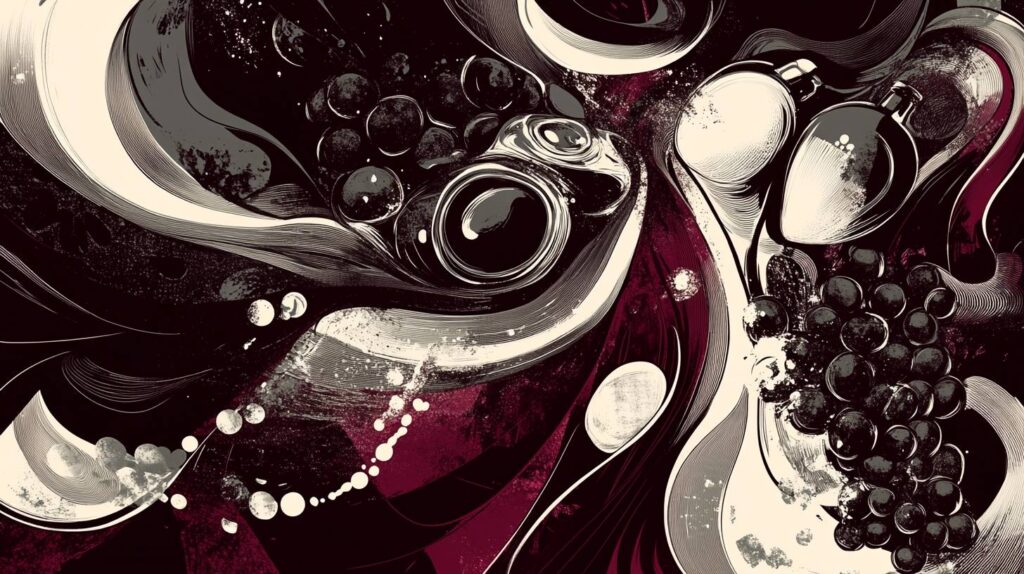Vermouth, an aromatized fortified wine with a rich history, is an indispensable ingredient in classic cocktails like the Manhattan, Martini, and Negroni. But what happens when you find yourself in a situation where vermouth is not available? The good news is that there are plenty of excellent Vermouth substitutes that can come to your rescue, potentially even elevating your favorite cocktails. This guide aims to provide an analytical and comprehensive look into the world of vermouth wine substitutes, focusing on the two most common types: sweet and dry vermouth. Whether you’re a professional bartender or a home cook, this guide will serve as your ultimate resource.
Vermouth Taste Complexity
The complexity of vermouth’s taste is a result of its intricate blend of botanicals, spices, and herbs. Vermouth was initially made to mask the inferior quality of wine or to extend its shelf life. Today, it is crafted to be enjoyed on its own or as a key ingredient in cocktails.
Vermouth comes in two primary styles: sweet and dry. Sweet vermouth, generally Italian, is slightly bitter and mildly sweet. It often contains 10-14% sugar and is darker due to the presence of caramel. Dry vermouth, usually French, is more bitter, with the bitterness often coming from spices like nutmeg or bitter orange peel. It contains only about 4% sugar.
Understanding the complexity of vermouth’s taste—its sweetness, bitterness, and herbal notes—can greatly enhance your ability to choose the perfect substitute or to craft a cocktail that highlights these complexities.
Top Vermouth Wine Substitutes
Port as a Vermouth substitute
Port wine, a fortified wine from Portugal, has been gaining traction as a viable substitute for vermouth in various cocktails and culinary applications. Tobin Shea, the bar director of Redbird in downtown Los Angeles, is one of the professionals who advocate for using Port, particularly Madeira and Tawny Port, as a vermouth substitute. According to Shea, Madeira’s oxidized flavor helps replace the herbaceous notes of the botanicals in vermouth, making it an excellent alternative.

Tawny Port, on the other hand, brings a different layer of complexity to the table. Its aging process introduces flavors of nuttiness and dried fruit, adding a unique twist to cocktails that traditionally use vermouth. This makes tawny Port not just a substitute but a flavor enhancer, offering a different but equally complex profile.
It’s worth noting that Port wines come in various styles, including Ruby, Tawny, White, and Rosé, each with its unique characteristics. While Ruby and Tawny are the most commonly used for substituting vermouth, White Port has also been suggested for cocktails that require dry vermouth.
Understanding the nuances between different types of Port can help you make an informed decision when substituting it for vermouth, ensuring that your cocktail or dish doesn’t just survive the substitution but thrives.
Sherry as a Vermouth Substitute: A Versatile Option
Sherry, a fortified wine from the Jerez region of Spain, has been recognized as one of the most versatile substitutes for vermouth. According to Wine Enthusiast, Sherry’s broad spectrum of flavors makes it an ideal replacement for any type of vermouth. Sherry comes in various styles, including Fino, Manzanilla, Amontillado, and Oloroso, each offering a unique set of characteristics that can complement or even elevate your cocktails.
For instance, Fino and Manzanilla Sherries are lighter and can be used as substitutes for dry vermouth. They are excellent in cocktails that pair well with tequila and mezcal. On the other hand, Amontillado and Oloroso Sherries are oxidized, offering a richer, nuttier profile that can replace sweet vermouth in cocktails like the Manhattan or Negroni.
Experts in the field suggest that the type of Sherry you choose should depend on the cocktail you’re making. For example, a Manzanilla Sherry might be more suitable for a martini, while an Oloroso could be the perfect fit for a richer, more robust cocktail like a Boulevardier.
Amaro as a Vermouth Substitute: The Expansive Category

Amaro, an Italian herbal liqueur that is commonly consumed as an after-dinner digestif, offers a unique alternative to vermouth. According to a discussion on Reddit’s r/Amaro, while Amaro is inherently sweet and bitter, it lacks the dryness that some vermouths offer. However, its complex flavor profile, which includes various botanicals, herbs, and spices, makes it a compelling substitute for both sweet and dry vermouth in cocktails.
For cocktails like the Black Manhattan, Averna is often recommended as a vermouth substitute. It offers a rich, complex flavor profile that includes notes of citrus, herbs, and spices. On the other hand, for Negroni, Montenegro or Nonino are popular choices. These Amari bring a different set of flavors to the cocktail, adding layers of complexity that can make the drink more interesting.
It’s worth noting that the choice of Amaro can significantly change the flavor profile of the cocktail. For instance, Cynar, with its artichoke base, offers a unique flavor that can make your cocktail stand out. However, it’s essential to remember that using Amaro will change the drink’s profile and may even warrant a different name for the cocktail.
Coffee Liqueur as a Vermouth Substitute: An Unexpected Alternative
Coffee liqueur, a staple in drinks like the Espresso Martini and Black Russian, has been gaining attention as an unconventional but effective vermouth substitute. According to bar consultant Karl Steuck, coffee liqueur can serve as a vermouth substitute in specific applications. Steuck prefers to split the base with vermouth, suggesting that coffee liqueur can complement rather than entirely replace vermouth in certain cocktails.
The unique flavor profile of coffee liqueur, which combines the bitterness of coffee with the sweetness of sugar, can add a new dimension to cocktails that traditionally use vermouth. For instance, in a Negroni, the coffee notes can introduce a roasted complexity that contrasts beautifully with the bitterness of Campari. Similarly, in a Manhattan, coffee liqueur can add a touch of sweetness and a hint of coffee aroma that can make the cocktail more intriguing.
However, it’s crucial to note that using coffee liqueur will significantly alter the cocktail’s flavor profile. Therefore, it may be best suited for experimental cocktails or variations of classics rather than as a direct one-to-one substitute.
Cocchi Americano and Lillet Blanc as Vermouth Substitutes
Cocchi Americano and Lillet Blanc are two aromatized wines that have been discussed as potential substitutes for vermouth. According to a thread on Reddit’s r/cocktails, Cocchi Americano and Lillet Blanc are much sweeter than dry vermouth. They could substitute for sweet blanc vermouth pretty well, but using them in place of dry vermouth will result in a sweeter martini. This isn’t necessarily a bad thing but alters the traditional profile of a dry martini.
Cocchi Americano is made with Moscato wine and is known for its bracing bitterness. It’s often consumed as an aperitif and is infused with various herbs and spices. Lillet Blanc, on the other hand, is a French aromatized aperitif wine made with a blend of Bordeaux grapes and fortified with a blend of citrus liqueurs. Both of these options offer unique flavor profiles that can add complexity to cocktails.
However, it’s essential to note that these substitutes won’t yield the same results as traditional vermouth. For instance, a classic Negroni made with Cocchi Americano or Lillet Blanc will have a different but equally intriguing flavor profile.
Sake a Vermouth Substitute: For the Daring
FAQs about Vermouth Wine Substitutes
1. Can I Substitute Dry Vermouth for Sweet Vermouth?
Yes, you can, but it will change the flavor profile of your drink. You may need to add a dash of simple syrup to balance the flavors.
2. Can I Substitute Vermouth for White Wine?
Yes, but it’s essential to consider the context. In cooking or for an apéritif, it can work. However, it’s not recommended to pour a glass of vermouth instead of white wine.
3. Can You Substitute Sherry for Vermouth?
Yes, Sherry is one of the best substitutes for vermouth. Different styles of Sherry can replace both sweet and dry vermouth effectively.
4. What Can I Substitute for Vermouth in a Negroni?
Lillet or Sherry can be excellent options for a direct sweet vermouth substitute in a Negroni.
5. Can Port Wine Replace Vermouth?
Yes, different styles of Port, like Madeira and tawny Port, can effectively replace vermouth in cocktails.
6. Is Amaro a Good Substitute for Vermouth?
Amaro can be a good substitute, especially in cocktails like the Black Manhattan. However, it will change the drink’s profile.
7. Can Coffee Liqueur Act as a Vermouth Substitute?
Yes, coffee liqueur can act as a substitute, especially when the base is split with vermouth. It’s suitable for experimental cocktails.
8. Are Cocchi Americano and Lillet Blanc Good Substitutes for Vermouth?
Yes, both Cocchi Americano and Lillet Blanc can serve as substitutes for vermouth, but they will yield different results.
9. Can Sake Replace Vermouth?
Yes, but choosing the right sake to match the flavor profile of your drink can be challenging. It’s best suited for those willing to experiment.







